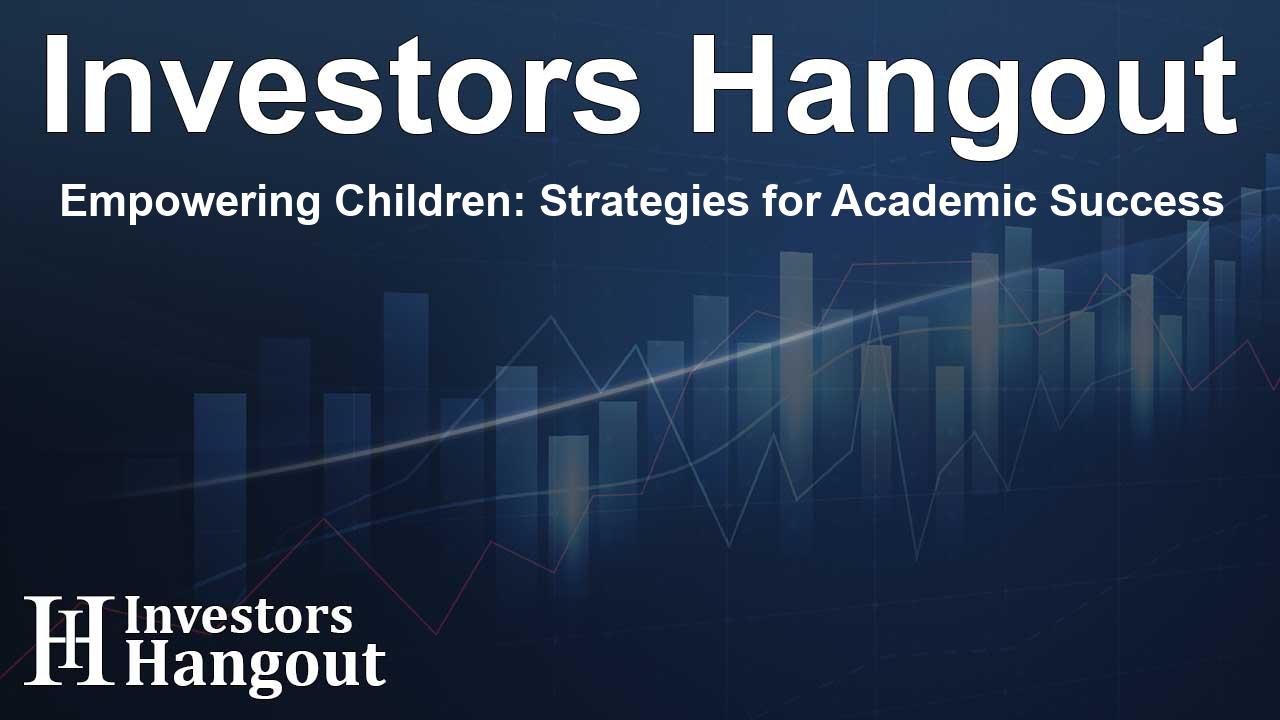Empowering Children: Strategies for Academic Success

Empowering Children for Academic Success
In today's tech-savvy world, parents often find themselves navigating the challenges of raising young students who are more connected than ever. While smartphones and social media have their benefits, they can also lead to issues like tiredness and distractedness in school. Educators and parents must join forces to ensure students can focus, learn, and thrive academically.
Collaboration Between Parents and Schools
One principal has recognized the importance of creating a partnership between parents and schools. By developing workshops specifically designed for parents, she's addressing the challenges faced by students today. These workshops aim to equip parents with strategies for helping their children succeed both in and out of the classroom.
A Workshop for Parents
Principal Tracey Duhaime from Greensboro Charter Academy is leading the charge. Her school's workshop encourages parents to limit technology use and focus on the importance of establishing routines for their children. The goal is to foster a supportive environment that promotes educational success through collaboration.
The Impact of Technology on Learning
According to Duhaime, student performance can greatly suffer due to excessive screen time. Young children who come to school tired or distracted find it difficult to engage with their peers or concentrate on their studies. Many students struggle with sleep, leading to cranky and disengaged dispositions. This concern highlights the need for parents to review their children's technology habits and their potential impact on learning.
Tips for Managing Technology Use
Duhaime offers three core strategies for parents to consider implementing:
- Reconsider cell phones for younger students. A significant number of adolescents use technology right up until bedtime, leading to potential sleep disruptions. Parents might want to evaluate if their children really need cell phones at such a young age.
- Establish a consistent nighttime routine. Setting firm bedtime schedules can significantly improve a child's ability to focus in school. Children aged six to thirteen should aim for 9-11 hours of sleep, while teenagers benefit from 8-10 hours.
- Encourage healthy breakfast habits. Breakfast is essential for preparing students for a productive day. Studies have shown that students who eat breakfast perform better academically, with improved attention and cognitive function.
Understanding Parental Challenges
Educators understand that parents are doing their best, facing numerous demands while trying to ensure their children succeed in school. The pressures of modern life, coupled with the influence of technology, can complicate the nutritional and educational needs of children.
Duhaime encourages parents to take a moment to reassess what might be in the best interest of their children. Addressing issues like sleep and nutrition can foster positive growth and readiness for learning.
The Role of Schools in Promoting Success
Greensboro Academy serves students from kindergarten through eighth grade, supporting them to achieve their full potential. Within the framework of National Heritage Academies, the school emphasizes the importance of creating supportive learning environments as well as efficient parental engagement.
Schools play a vital role in guiding families through educational challenges while promoting healthy habits. Communities that incorporate effective communication about routine and technology usage can significantly enhance student performance and well-being.
Frequently Asked Questions
Why is technology use before bed a concern for students?
Technology use before bed can disrupt sleep patterns, leading to tiredness, crankiness, and difficulty focusing in school.
How can parents create a suitable nighttime routine?
Parents can create a straightforward nighttime routine by establishing a consistent bedtime, limiting screen time, and engaging in calming pre-sleep activities.
What is considered a healthy breakfast for students?
A healthy breakfast might include whole grains, fruits, and protein to set students up for a successful school day.
What are some signs that a child may be too reliant on technology?
Signs include difficulty sleeping, irritability, struggling to focus, and poor academic performance.
How can schools further support parents in managing their children's behavior?
Schools can offer workshops, resources, and open communication channels to help parents address behavioral and academic challenges effectively.
About The Author
Contact Hannah Lewis privately here. Or send an email with ATTN: Hannah Lewis as the subject to contact@investorshangout.com.
About Investors Hangout
Investors Hangout is a leading online stock forum for financial discussion and learning, offering a wide range of free tools and resources. It draws in traders of all levels, who exchange market knowledge, investigate trading tactics, and keep an eye on industry developments in real time. Featuring financial articles, stock message boards, quotes, charts, company profiles, and live news updates. Through cooperative learning and a wealth of informational resources, it helps users from novices creating their first portfolios to experts honing their techniques. Join Investors Hangout today: https://investorshangout.com/
The content of this article is based on factual, publicly available information and does not represent legal, financial, or investment advice. Investors Hangout does not offer financial advice, and the author is not a licensed financial advisor. Consult a qualified advisor before making any financial or investment decisions based on this article. This article should not be considered advice to purchase, sell, or hold any securities or other investments. If any of the material provided here is inaccurate, please contact us for corrections.
